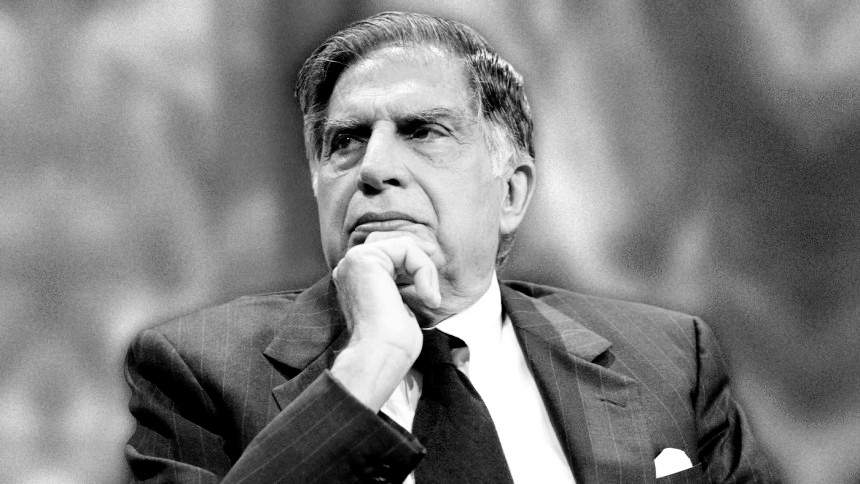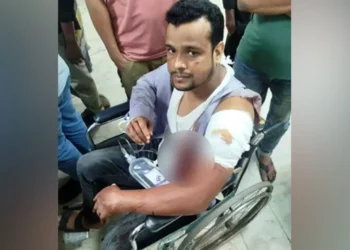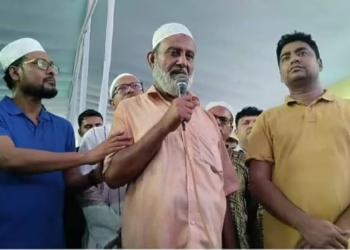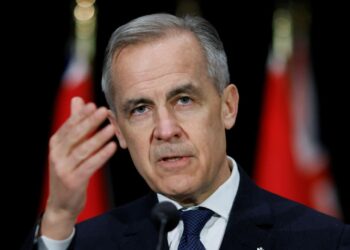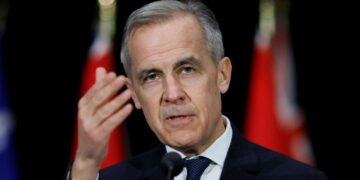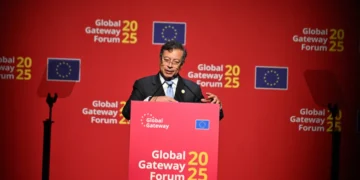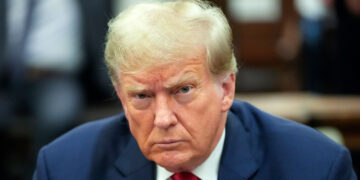Ratan Tata, the chairman of Tata Sons and the most successful industrialist in India, passed away in a Mumbai hospital today, according to the company.
In a statement, Tata Sons Chairman N Chandrasekaran said, “It is with a profound sense of loss that we bid farewell to Mr. Ratan Naval Tata, a truly unique leader whose immeasurable contributions have shaped not only the Tata Group but also the foundations of our nation.”.
The 87-year-old industrialist was diagnosed with age-related illnesses at Breach Candy Hospital.
Ratan Tata, the head of the group for over 20 years, was receiving intensive care in the hospital.
In 1991, he was appointed chairman of the auto-to-steel conglomerate Tata Sons, and he led the company his great-grandfather started over a century ago until 2012.
The industrialist was regarded highly by Indian Prime Minister Narendra Modi tonight, who called him a remarkable human being, a brilliant business leader, and a kind person.
“One of the most unique aspects of Shri Ratan Tata Ji was his passion towards dreaming big and giving back. He was at the forefront of championing causes like education, healthcare, sanitation, and animal welfare, to name a few,” Modi said on X.
Modi claimed that although Tata’s influence extended well beyond the boardroom, he gave steady leadership to one of the most significant and strong corporate empires in India.
Ratan Tata’s death was mourned by the Congress, the main opposition party. Ratan Tata, according to the Leader of the Opposition, Rahul Gandhi, was a visionary “who has left a lasting mark on both business and philanthropy.”.
Following Tata’s passing, Congress President Mallikarjun Kharge said, “We have lost an invaluable son of India.”.
In 1996, he established the telecoms company Tata Teleservices, and in 2004, he went public with the IT company Tata Consultancy Services.
After stepping down, Ratan Tata was conferred with the title of chairman emeritus of Tata Sons, Tata Industries, Tata Motors, Tata Steel, and Tata Chemicals, the company website says.
On graduating with a degree in architecture at Cornell University, US, he returned to India and, in 1962, began working for the group of his great-grandfather.
He worked in several Tata companies, including Telco, now Tata Motors Ltd, as well as Tata Steel Ltd, and later made his mark by erasing losses and increasing market share at the group unit National Radio and Electronics Company.
Ratan Tata assumed leadership of the business in 1991 following the resignation of his uncle JRD Tata. This transition in leadership coincided with India’s drastic economic changes and its opening up to the world.
The Tata group purchased British tea firm Tetley in 2000 for $432 million and Anglo-Dutch steelmaker Corus in 2007 for $13 billion, at the time the biggest takeover of a foreign firm by an Indian company.
Tata Motors then acquired British luxury auto brands Jaguar and Land Rover from Ford Motor Company in 2008 for $2.3 billion.
Ratan Among Tata’s pet projects at Tata Motors were the Indica, the first automobile model ever created and produced in India, and the Nano, which was formerly thought to be the least expensive car in the world. He provided the first drawings for both models.
The Nano, which was the realisation of Ratan Tata’s desire to create an affordable automobile for the Indian public and was priced at under 100,000 rupees (about $1,200), was harmed by early safety flaws and poorly executed marketing. The Indica was a financial success. A decade after its launch, it was cancelled.
Tata was a licensed pilot who flew the corporate aircraft on occasionally.
Being single, leading a humble lifestyle, and engaging in charitable work, Ratan Tata was well-known for these characteristics.
The group’s holding company, Tata Sons, has philanthropic trusts owning almost two-thirds of its shares.
Ratan Tata’s leadership at Tata had its share of controversy when a bitter public feud broke out after the company ousted Cyrus Mistry, a scion of the billionaire Shapoorji Pallonji clan, as chairman of Tata Sons in 2016.
Ratan Tata, the conglomerate’s chairman emeritus, was accused by Mistry of engaging and setting up a rival power centre within the corporation, while the Tata corporation claimed that Mistry had failed to turn around the company.
Once he left the Tata Group, Ratan Tata rose to popularity as an investor in Indian startups, supporting a number of businesses such as the digital payments company Paytm, the Ola Electric division, which is part of the Ola cab company, and Urban Company, which offers home and beauty services.
In 2008, Ratan Tata received the second-highest civilian superiority in India, the Padma Vibhushan award, for his outstanding and meritorious contributions to commerce and industry.
Source : The Daily Star

